On Friday, September 20, voices of practically every age, ethnicity, and nationality stepped outside en masse demanding that our leaders at home and around the globe listen to the world’s best scientists and take immediate and decisive action against climate change.
The movement is youth driven. It took the steady voice of a Swedish teen with Asperger’s Syndrome (her ‘superpower’) to call out today’s adult population for its failure to lead and protect tomorrow’s youth.
Read Greta Thunberg responds to Asperger's critics: 'It's a superpower'
Climate change is a business issue, government issue, health issue, social justice issue, and individual survival issue. Many organizations have put together a laundry list of actions people can take to help. But for any of it to be meaningful we each must begin by assessing our own daily choices with the simple, stark clarity Greta Thunberg applies to climate change.
For many, the week-long Climate Strike represents a beginning; for others, a bullhorn applied to those who have been sounding the alarm for decades. Now is the time to reflect upon what we as individuals are learning, and what action, if any, we are personally prepared to commit to.
“We don’t know how humans will respond to the threat and that could determine everything.” Listen to The Economist podcast, The Intelligence, for September 20, 2019, To all concern: a climate-change special. It offers a science and culture tutorial of past, present and future climate change issues.
Individual actions are important. But the scope of climate change means our government is an essential piece of the solution. Look for details coming soon about our November 6 Climate Crisis Public Issues Forum: Why Local Government Matters.
Scenes from the Madison Climate Strike
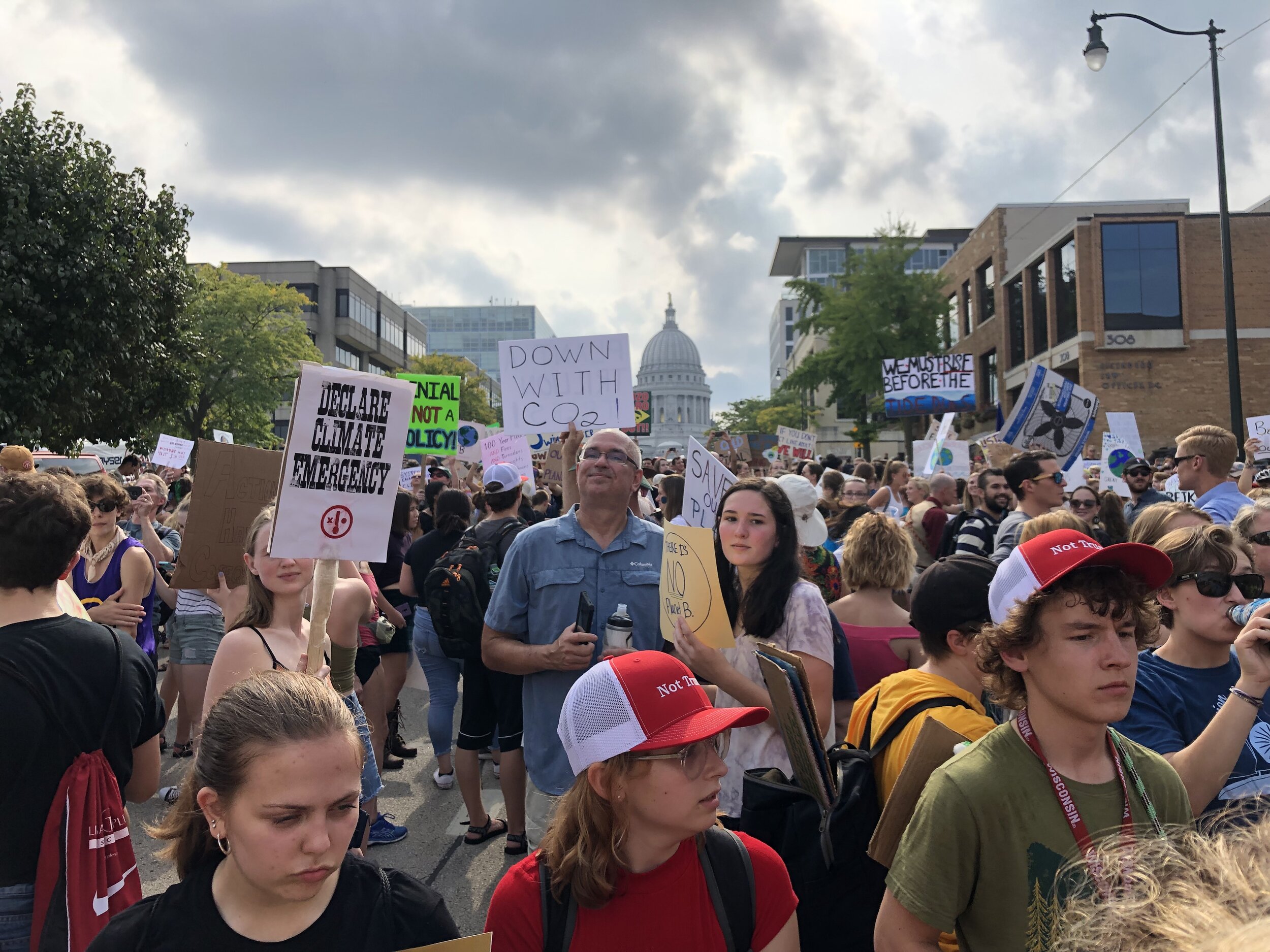
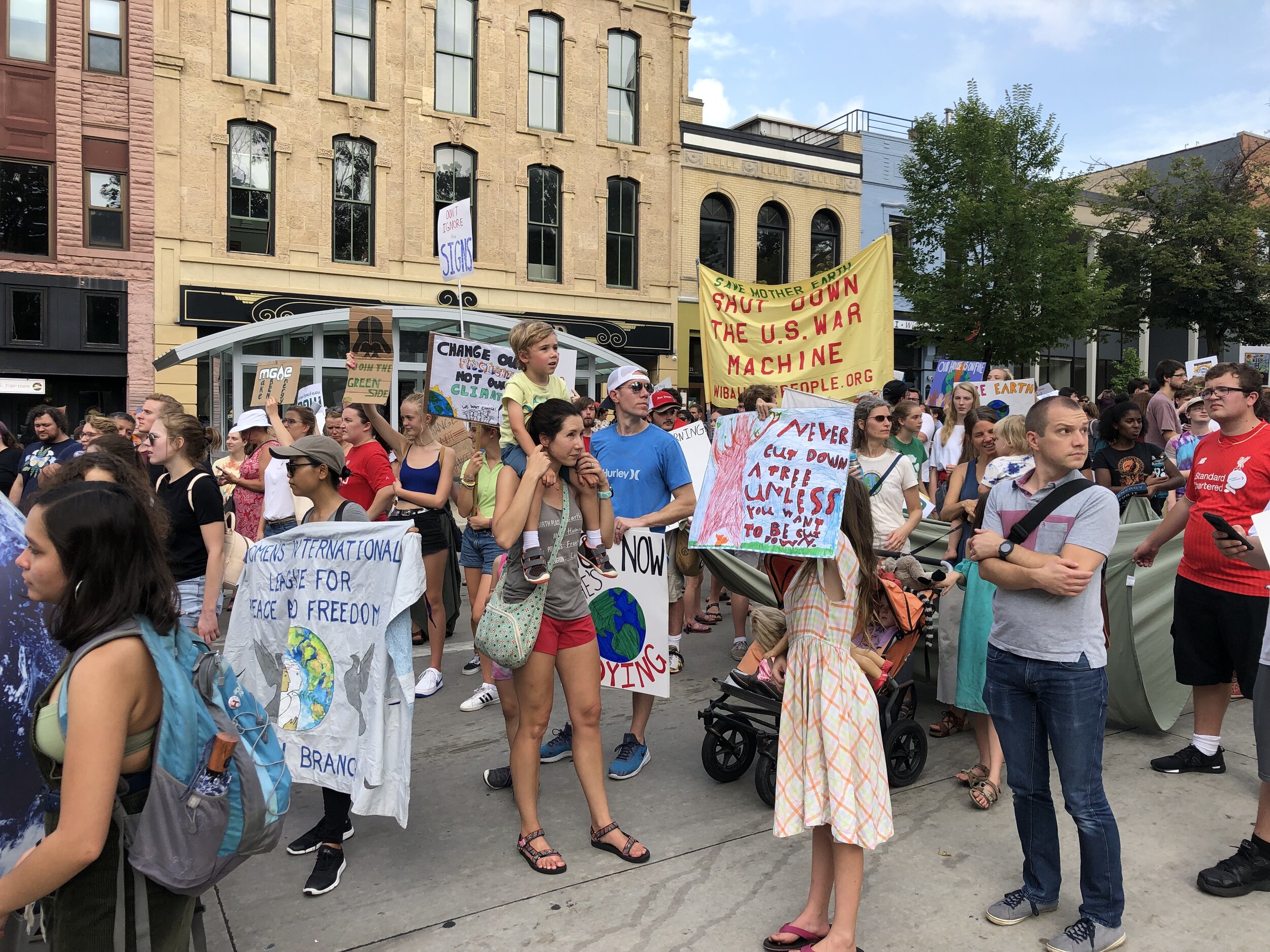
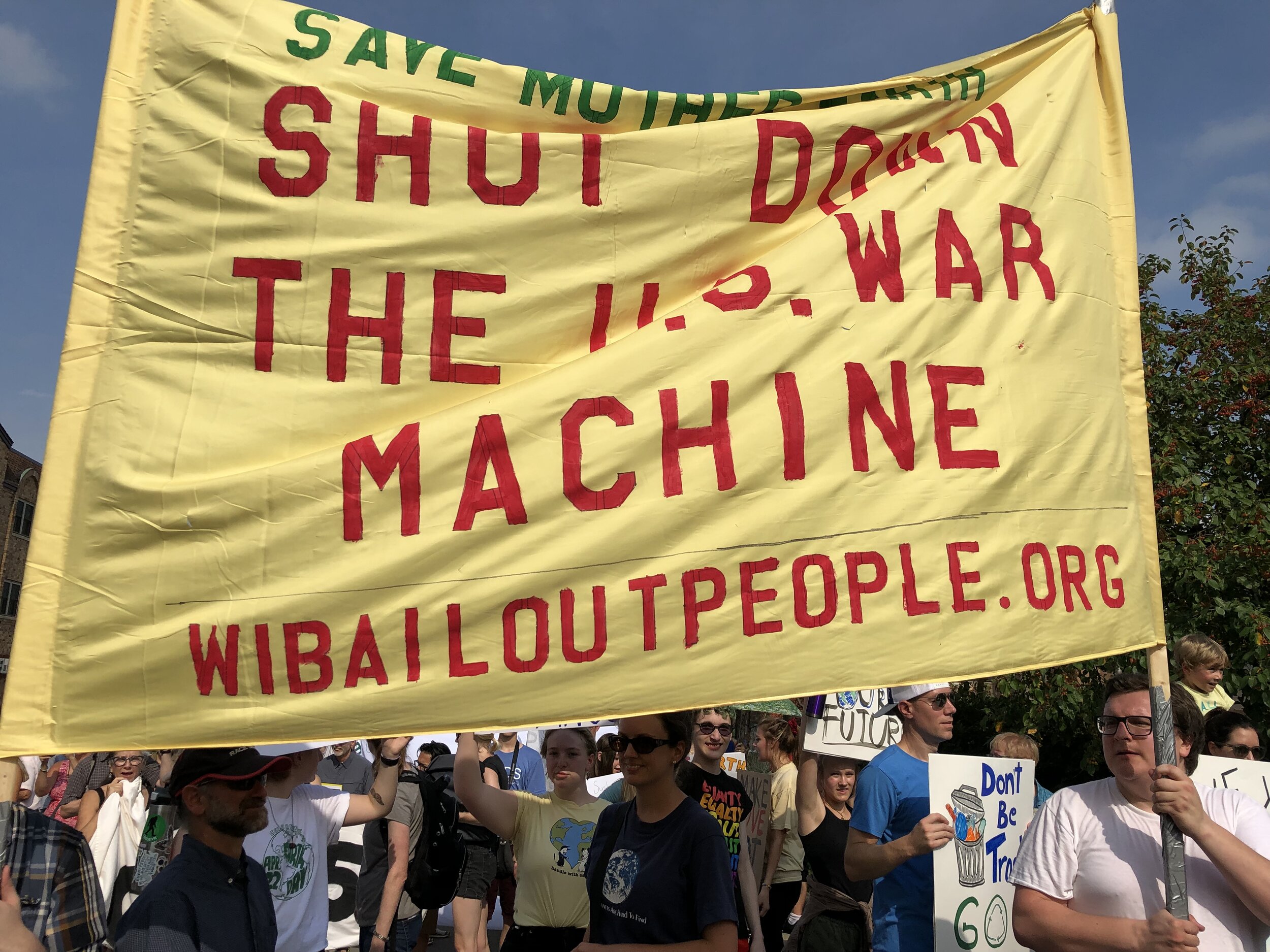
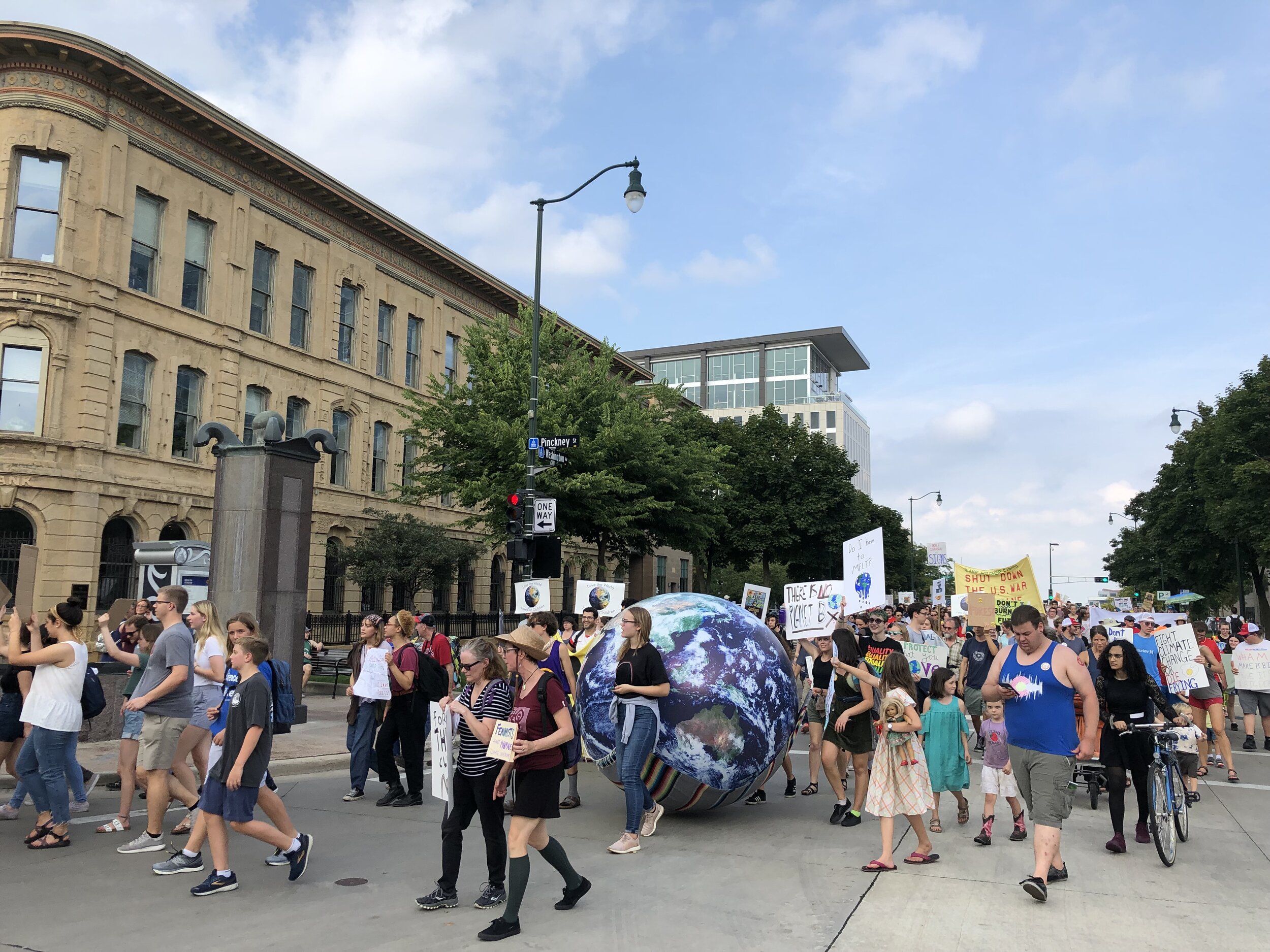
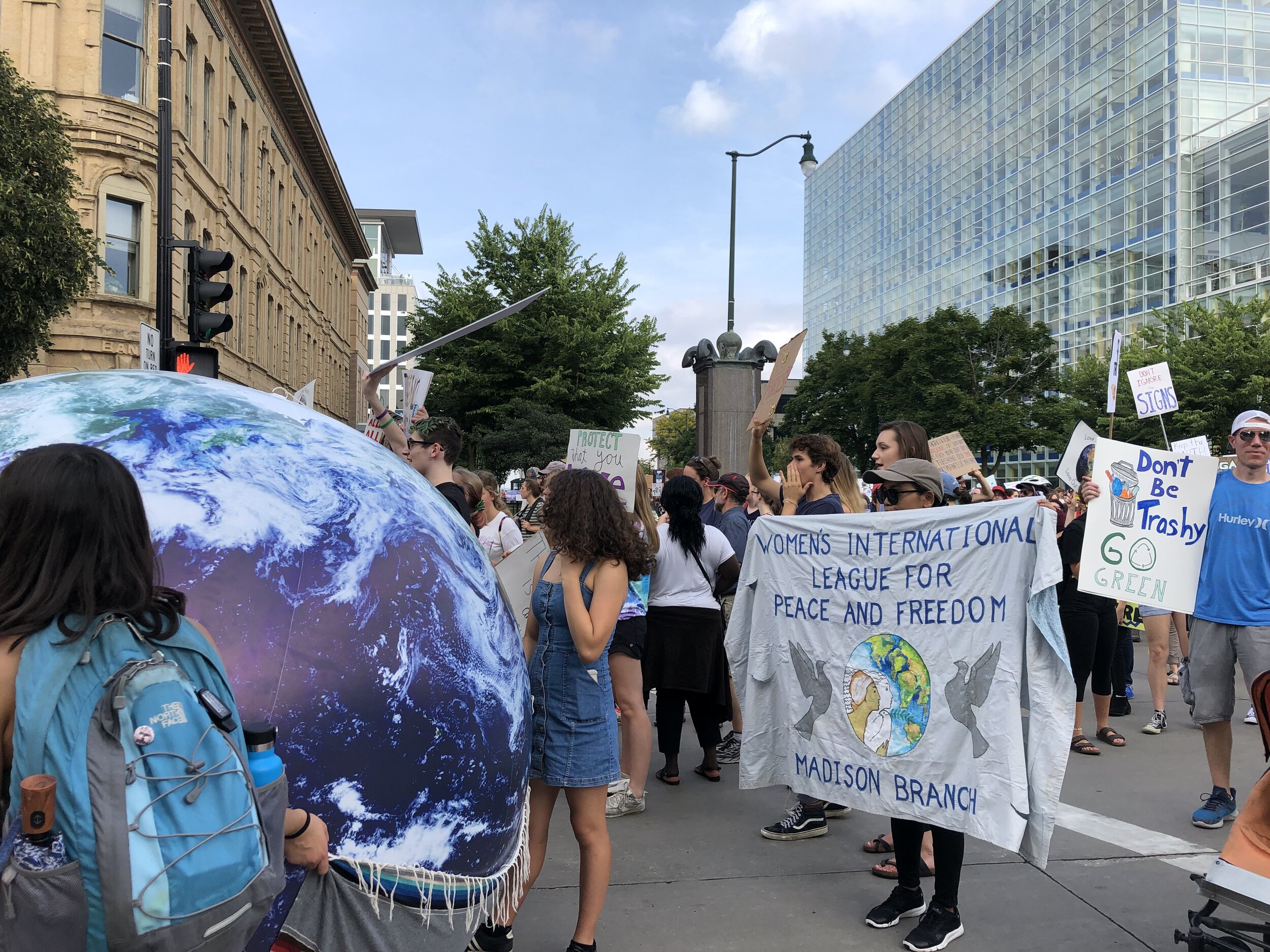
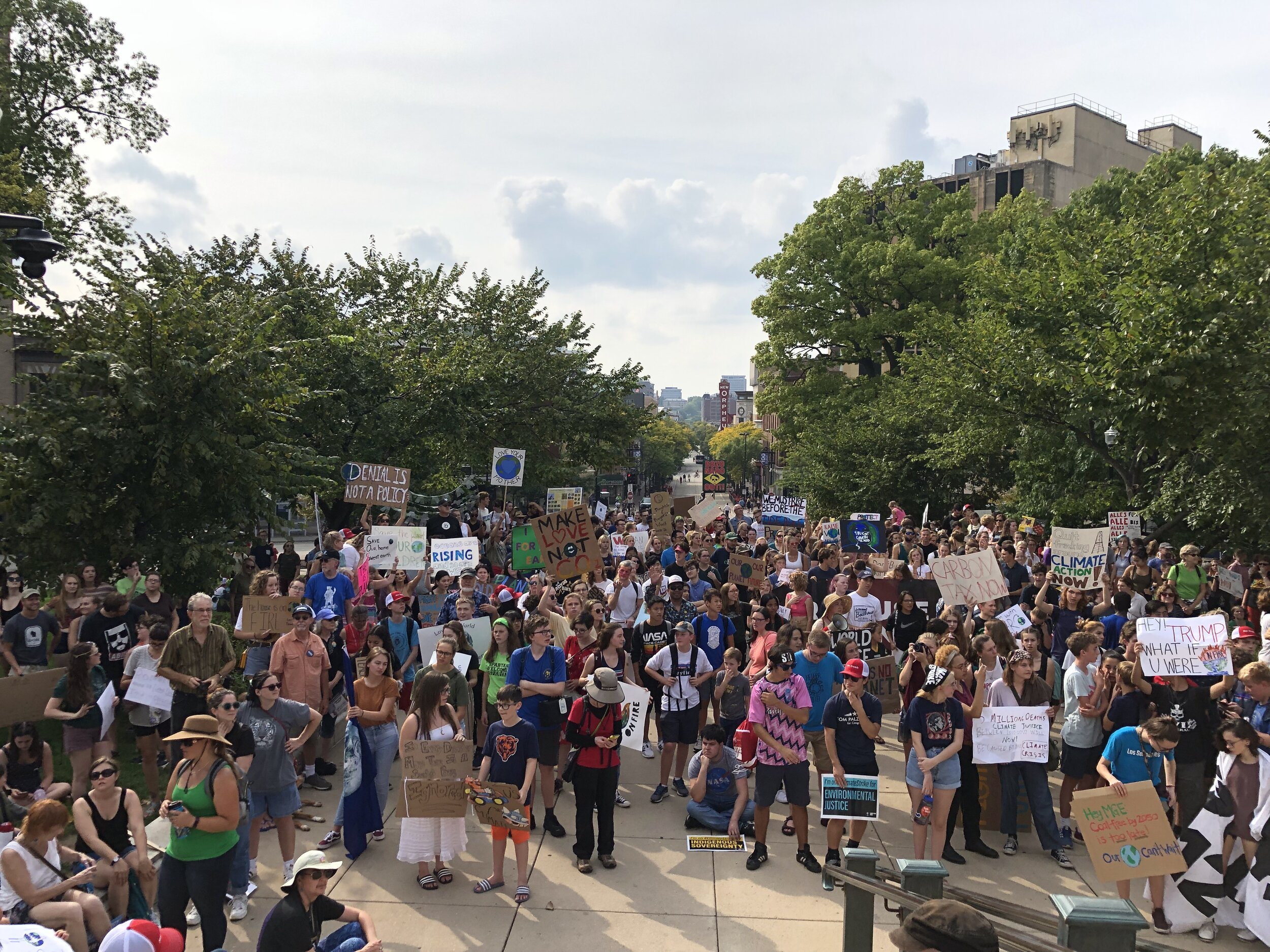
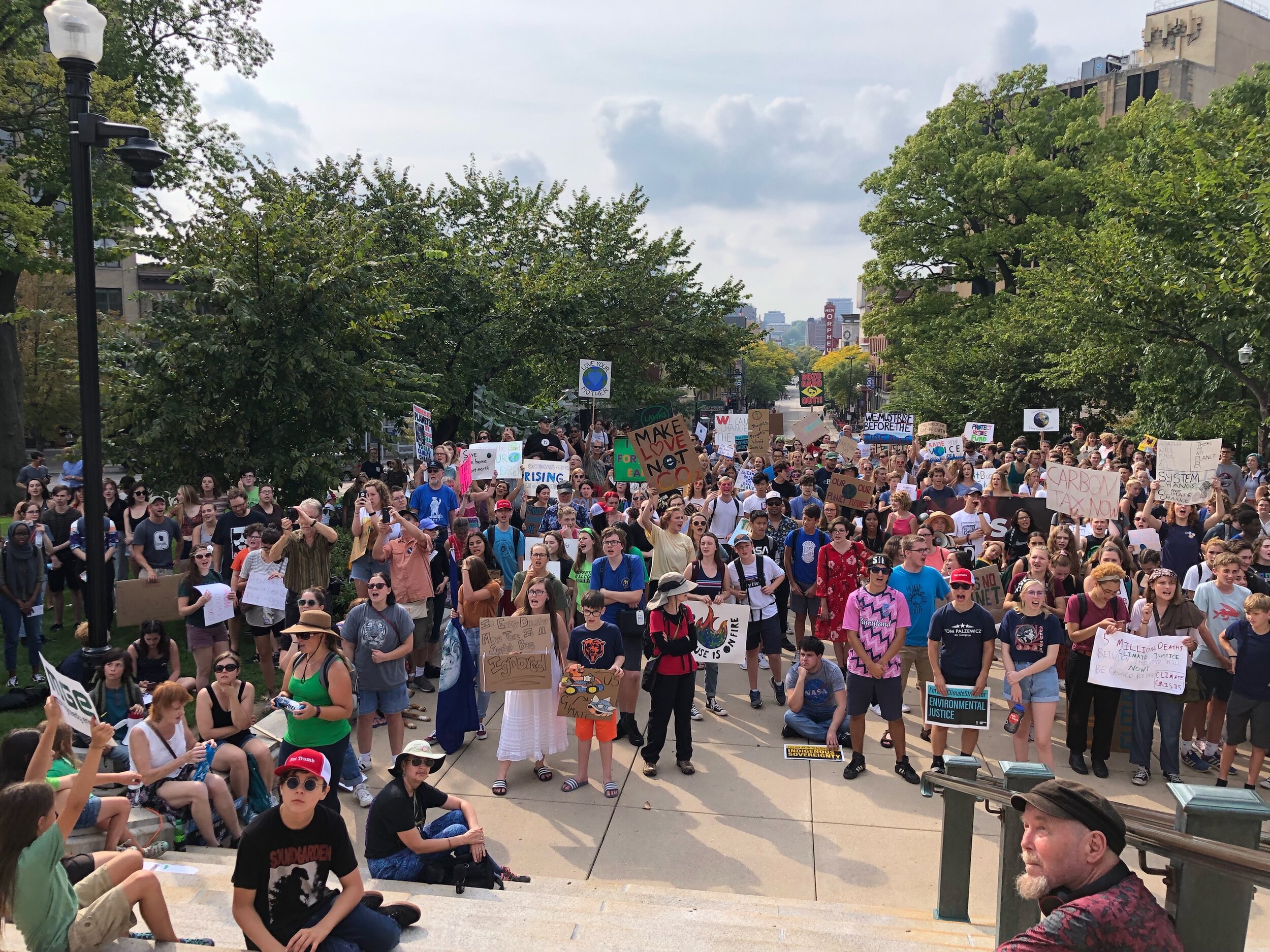
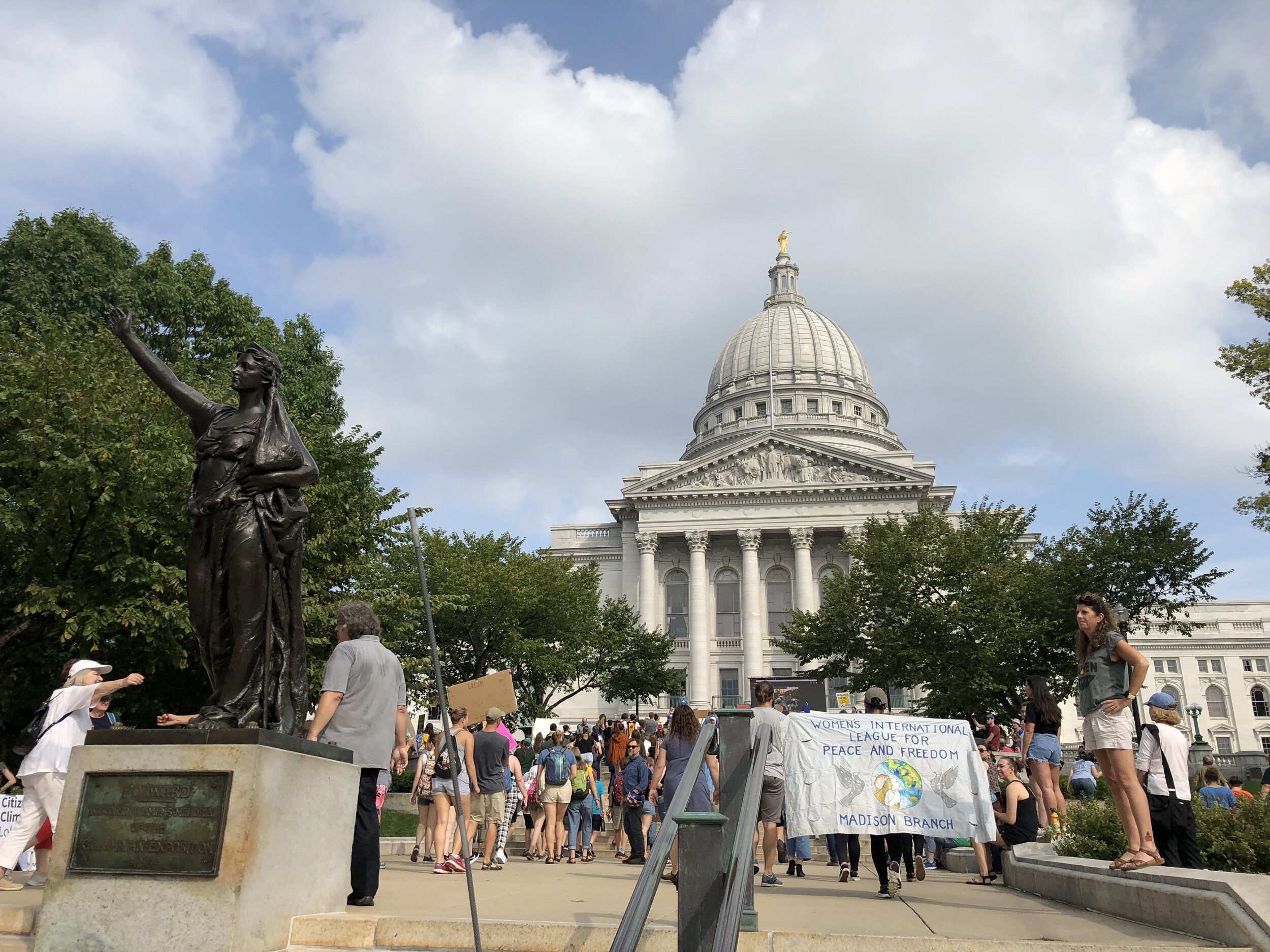
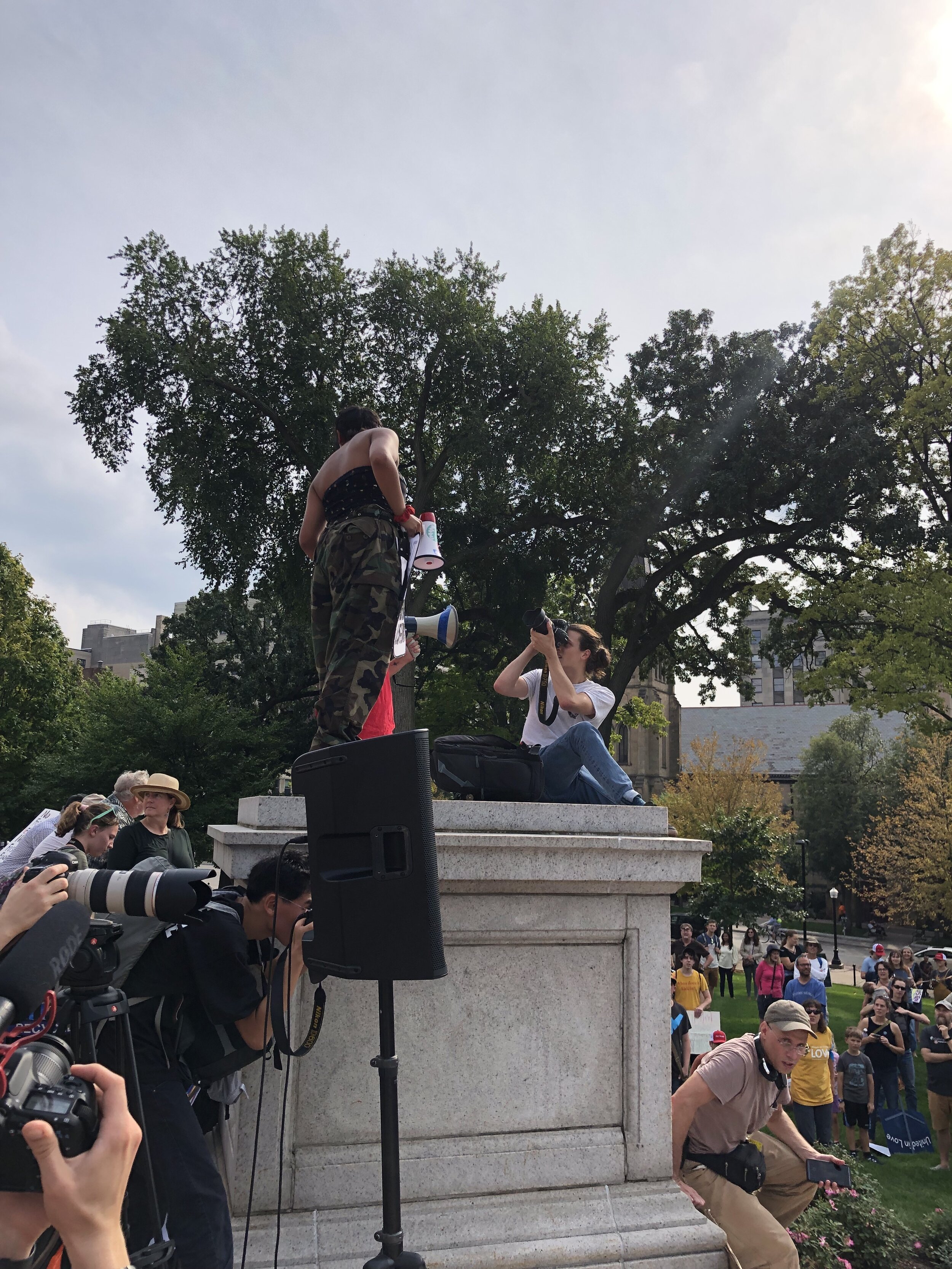
Photo credits: Linda Chhath
